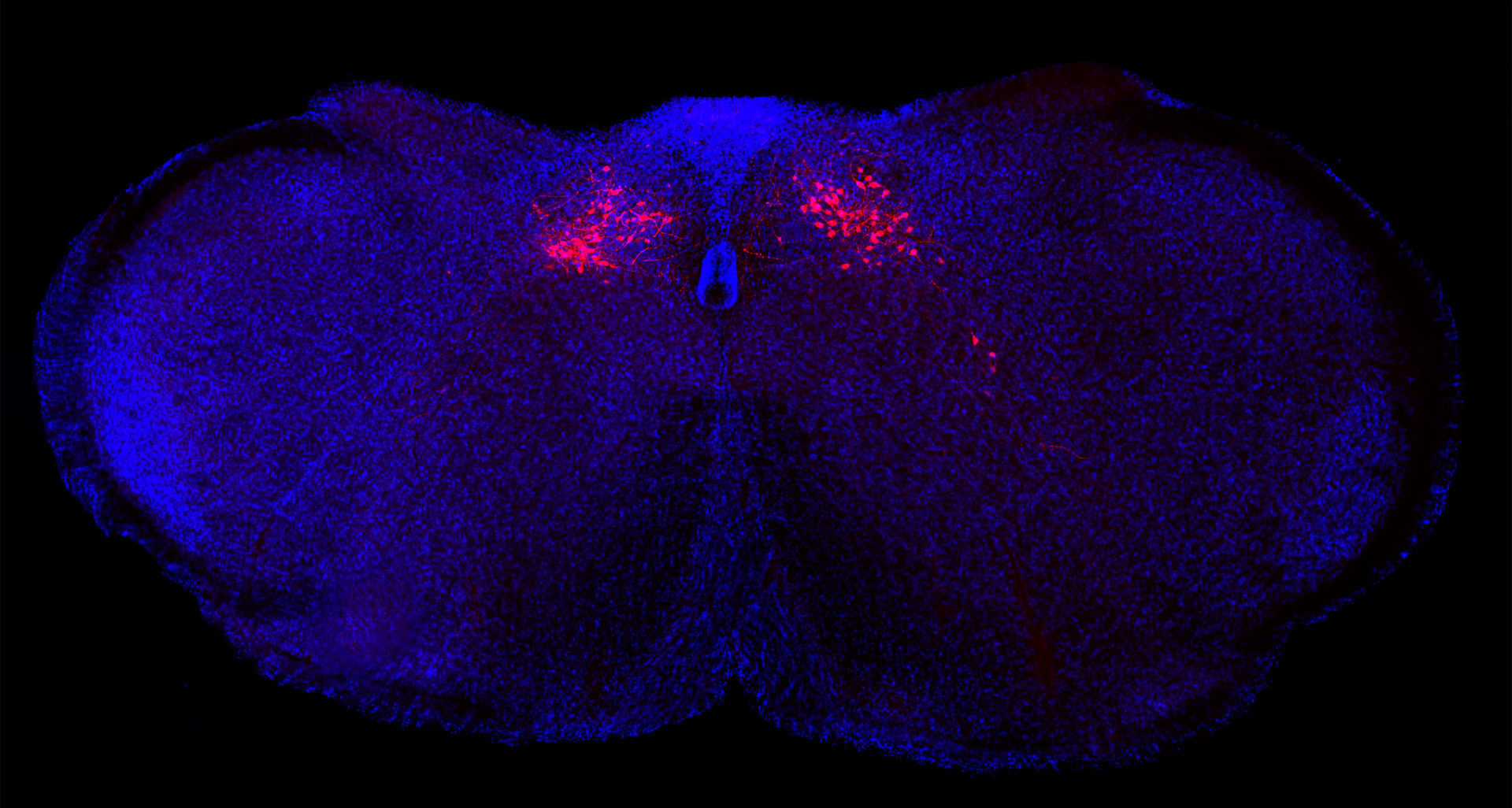A new study, showing it may be possible to turn inflammation up or down in the human body, 'could be tremendous' for treating conditions.
Immunologist Professor Luke O'Neill was speaking after scientists at Columbia University in the US identified a new brain circuit that controls the body's inflammatory reactions.
On this week's Show Me the Science, he said while there are still questions to be answered about finding the right balance, it's an exciting development.
"There's a very famous nerve called the vagus nerve, which connects the brain to the immune system, but there's been a breakthrough," Prof O'Neill said.
"Scientists have discovered the rheostat in the brain can be turned up or down and affects your whole body's inflammatory response.
"What the future of this is: you can turn on or turn off inflammation by tweaking a particular region in the brain".
 Neurons in the brainstem of a mouse that control body inflammatory responses (labeled in red) and the brain’s other cells (labeled in blue). Image: Hao Jin and Charles Zuker
Neurons in the brainstem of a mouse that control body inflammatory responses (labeled in red) and the brain’s other cells (labeled in blue). Image: Hao Jin and Charles ZukerProf O'Neill said inflammation impacts several different diseases.
"They use therapeutic drugs that are still in development, they can stimulate them with electrodes and they can suppress inflammation in the body or ramp it up," he said.
"It's one-step-at-a-time territory, it's in mice mainly... if this pans this could be tremendous.
"Can you imagine a disease like ulcerative colitis, Crohn's disease, rheumatoid arthritis, multiple sclerosis, psoriasis? All of these involve inflammation.
"There are some anti-inflammatory treatments out there already that make some difference to people but this area is a whole new vista".
'Brain stem lit up' with inflammation
Prof O'Neill said the two scientists from Columbia University - Dr Charles Zucker and Dr Hao Jin - found neurons in the brain stem seemingly involved in inflammation.
"They started by infecting animals and then they began measuring parts of the brain using very elaborate imaging systems," he said.
"They noticed after infection a particular part of the brain stem lit up, suggesting that part was being turn on.
"What they noticed was this part of the brain links into the vagus nerve".
The vagus nerve is a "major highway" in your body which connects your brain to your heart, lungs, stomach and intestines.
Listen back here:









